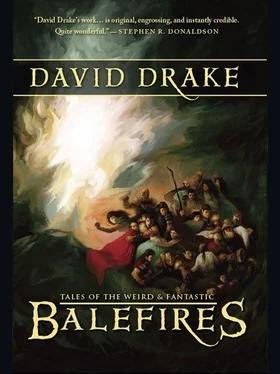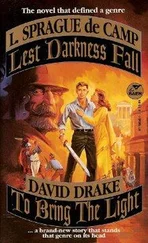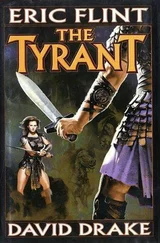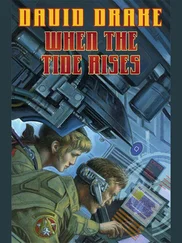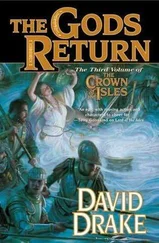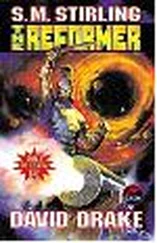David Drake - Balefires
Здесь есть возможность читать онлайн «David Drake - Balefires» весь текст электронной книги совершенно бесплатно (целиком полную версию без сокращений). В некоторых случаях можно слушать аудио, скачать через торрент в формате fb2 и присутствует краткое содержание. Жанр: Фантастика и фэнтези, на английском языке. Описание произведения, (предисловие) а так же отзывы посетителей доступны на портале библиотеки ЛибКат.
- Название:Balefires
- Автор:
- Жанр:
- Год:неизвестен
- ISBN:нет данных
- Рейтинг книги:5 / 5. Голосов: 1
-
Избранное:Добавить в избранное
- Отзывы:
-
Ваша оценка:
- 100
- 1
- 2
- 3
- 4
- 5
Balefires: краткое содержание, описание и аннотация
Предлагаем к чтению аннотацию, описание, краткое содержание или предисловие (зависит от того, что написал сам автор книги «Balefires»). Если вы не нашли необходимую информацию о книге — напишите в комментариях, мы постараемся отыскать её.
Balefires — читать онлайн бесплатно полную книгу (весь текст) целиком
Ниже представлен текст книги, разбитый по страницам. Система сохранения места последней прочитанной страницы, позволяет с удобством читать онлайн бесплатно книгу «Balefires», без необходимости каждый раз заново искать на чём Вы остановились. Поставьте закладку, и сможете в любой момент перейти на страницу, на которой закончили чтение.
Интервал:
Закладка:
"The grenade, that was real," Morzek concluded. "The rest of the report was a lie."
Rose Lunkowski reseated herself gracefully on a chair in front of the heavily draped windows."Why don't you start at the beginning, Sergeant?"she said with a thin smile that did not show her teeth. "There is much we would like to know before you are gone."
"Sure," Morzek agreed, tracing a mottled forefinger across the pigmented callosities on his face. "Not much to tell. The night after Stevie got assigned to my platoon, the dinks hit us. No big thing. Had one fellow dusted off with brass in his ankle from his machine gun blowing up, that was all. But a burst of AK fire knocked Stevie off his tank right at the start."
"What's all this about?" Richmond complained. "If he was killed by rifle fire, why say a grenade-"
"Silence!" The command crackled like heel plates on concrete.
Sgt. Morzek nodded. "Why, thank you, Mr. Lunkowski. You see, the captain there doesn't know the bullets didn't hurt Stevie. He told us his flak jacket had stopped them. It couldn't have and it didn't. I saw it that night, before he burned it-five holes to stick your fingers through, right over the breast pocket. But Stevie was fine, not a mark on him. Well, Christ, maybe he'd had a bandolier of ammo under the jacket. I had other things to think about."
Morzek paused to glance around his audience. "All this talk, I could sure use a drink. I killed my bottle back at the Federal Building."
"You won't be long," the girl hissed in reply.
Morzek grinned."They broke up the squadron, then," he rasped on, "gave each platoon a sector of War Zone C to cover to stir up the dinks. There's more life on the moon than there was on the stretch we patrolled. Third night out, one of the gunners died. They flew him back to Saigon for an autopsy but damned if I know what they found. Galloping malaria, we figured.
"Three nights later another guy died. Dawson on three-six… Christ, the names don't matter. Some time after midnight his track commander woke up, heard him moaning. We got him back to Quan Loi to a hospital, but he never came out of it. The lieutenant thought he got wasp stung on the neck-here, you know?" Morzek touched two fingers to his jugular. "Like he was allergic. Well, it happens."
"But what about Stefan?" Mrs. Lunkowski asked. "The others do not matter."
"Yes, finish it quickly, Sergeant," the younger woman said, and this time Richmond did catch the flash of her teeth.
"We had a third death," Morzek said agreeably, stroking the zipper of his AWOL bag back and forth. "We were all jumpy by then. I doubled the guard, two men awake on every track. Three nights later, and nobody in the platoon remembered anything from twenty-four hundred hours till Riggs' partner blinked at ten of one and found him dead.
"In the morning, one of the boys came to me. He'd seen Stevie slip over to Riggs, he said; but he was zonked out on grass and didn't think it really had happened until he woke up in the morning and saw Riggs under a poncho. By then, he was scared enough to tell the whole story. Well, we were all jumpy."
"You killed Stefan." It was not a question but a flat statement.
"Oh, hell, Lunkowski," Morzek said absently, "what does it matter who rolled the grenade into his bunk? The story got around and… something had to be done."
"Knowing what you know, you came here?" Mrs. Lunkowski murmured liquidly. "You must be mad."
"Naw, I'm not crazy, I'm just sick." The sergeant brushed his left hand over his forehead. "Malignant melanoma, the docs told me. Twenty-six years in the goddam army and in another week or two I'd bewarted to death.
"Captain," he added, turning his cancerous face toward Richmond, "you better leave through the window."
"Neither of you will leave!" snarled Rose Lunkowski as she stepped toward the men.
Morzek lifted a fat gray cylinder from his bag."Know what this is, honey?"he asked conversationally.
Richmond screamed and leaped for the window. Rose ignored him, slashing her hand out for the phosphorous grenade. Drapery wrapping the captain's body shielded him from glass and splintered window frame as he pitched out into the yard.
He was still screaming there when the blast of white fire bulged the walls of the house.
The Elf House
Bill Fawcett, a friend and a book packager, put together for Baen Books what was supposed to be an original anthology of novellas by Dave Weber, Eric Flint, and me. (It was a little more complex than that to begin with, and a lot more complex before the book eventually came out.) For that volume I wrote a Hammer novella which became part of an episodic Hammer novel.
Bill then sold a fantasy equivalent and asked me to write a short story in the Isles universe. Each volume of my Isles fantasy series has four individual viewpoint strands which combine for the climax. If Bill had been able to use a novella, I might've written a sequence which I'd spread out over five or six chapters when it appeared in the next Isles novel. A short story didn't fit that novel format, so I simply wrote "The Elf House" from scratch with no expectation-then or now-of ever reusing it as part of an Isles novel.
I wrote the story to be self-standing. If it had any value at all beyond doing a favor to a friend, it needed to be accessible to readers who had no previous familiarity with the Isles series. That meant limiting it to a single character.
I picked Cashel because he's friendly, cheerful, and very direct. Basically, I like him. (I identify with Cashel's sister Ilna, who's angry, harsh, and generally depressed, but that's another matter entirely.)
I knew the concept of the "The Elf House" wasn't original to me, but until I'd finished the rough draft I couldn't have told you from whom I'd stolen it. In reading it through for the first time, the source was obvious: "Kazam Collects," an early work by Cyril Kornbluth.
If I needed proof of how much better a writer I could be than I am, all I'd have to do is reread any of a dozen or more pieces which Kornbluth dashed off before he was twenty. Because I don't need that proof, I reread Kornbluth simply for the pleasure of discovering new flashes of brilliance with each reading. I suggest that all of you read him also.
Cashel didn't need to carry his quarterstaff in the corridors of the Vicar's palace-what'd been the Count of Haft's place till Prince Garric arrived the week before-but he was more comfortable holding the smooth, familiar hickory than he'd be otherwise. He didn't dislike big buildings, but he disliked being in them; and this palace had a nasty feel all its own.
Besides, the staff had been a friend in places where Cashel had no other friends. He wouldn't feel right about leaving it alone in the huge suite assigned to him while he went off to dinner with Garric in the roof garden. If the servants, officials, and the amazing number of other people crowding the palace stared at him, well, a man as big as Cashel or-Kenset was used to being stared at whether he carried a quarterstaff or not.
For a wonder there wasn't anybody around at the moment. Cashel sauntered down the hall looking at the cherub mural painted just above shoulder level. In the dim light through the transoms of the rooms to either side, there was something new to catch every time he passed.
Cashel started to grin at the little fellow with his wings spread as he struggled to lead a goat who didn't want to go. The sound of a girl crying jerked his head around.
He'd been holding the quarterstaff straight up and down in one hand. Now, without him thinking about it his left hand slipped into position a span below the right and he slanted the staff before him. "Ma'am?" he said, ready to deal with whatever was making a woman cry.
The girl wore servant's clothing, a cap and a simple gray tunic set off by a sash of bleached wool. She knelt a little way down a corridor which joined the main one from the right. Cashel didn't remember there being anything but a blank wall there, but he guessed he'd always missed it because he'd been intent on the mural opposite.
Читать дальшеИнтервал:
Закладка:
Похожие книги на «Balefires»
Представляем Вашему вниманию похожие книги на «Balefires» списком для выбора. Мы отобрали схожую по названию и смыслу литературу в надежде предоставить читателям больше вариантов отыскать новые, интересные, ещё непрочитанные произведения.
Обсуждение, отзывы о книге «Balefires» и просто собственные мнения читателей. Оставьте ваши комментарии, напишите, что Вы думаете о произведении, его смысле или главных героях. Укажите что конкретно понравилось, а что нет, и почему Вы так считаете.
